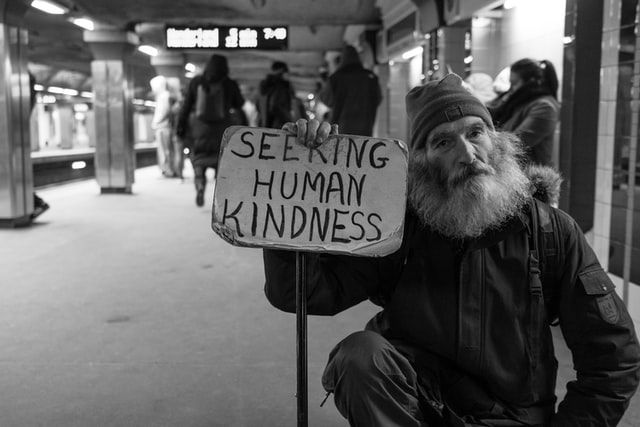Neighbors

30 In reply Jesus said: “A man was going down from Jerusalem to Jericho, when he was attacked by robbers. They stripped him of his clothes, beat him and went away, leaving him half dead. 31 A priest happened to be going down the same road, and when he saw the man, he passed by on the other side. 32 So too, a Levite, when he came to the place and saw him, passed by on the other side. 33 But a Samaritan, as he traveled, came where the man was; and when he saw him, he took pity on him. 36 “Which of these three do you think was a neighbor to the man who fell into the hands of robbers?” 37 The expert in the law replied, “The one who had mercy on him.” Jesus told him, “Go and do likewise.” (Luke 10:30-33, 36-37)
When an expert in Jewish law asked Jesus what he must do to inherit eternal life, Jesus knew that the man already knew the answer - love God, love neighbor. But when further asked to define neighbor, Jesus told a parable about a man who was robbed while traveling from Jerusalem to Jericho (a common occurrence). Though the man was badly injured, both a priest and Levite (priest's assistant in worship) passed the man and left him there. But when a Samaritan man saw the victim, he tended to his needs - even going beyond expectations in his care by binding his wounds and paying for his stay in an inn while he healed. Indeed, the Samaritan man behaved most like a neighbor to the injured man. This would have been jarring for Jesus' listeners because the priest and Levite should have been the heroes - but they were blind to the needs of the people - and the Samaritan should have been the enemy given the tensions between Samaritans and the Jewish communities of Jesus' day.
Beyond the societal divisions of race, class, and all of the "isms" that we can apply to our fraught relationships with one another, this story also sheds light on how easily we shield ourselves from the needs of others. It's easy to agree that we should strive to care for one another - especially those in greatest need - with the same compassion as the Samaritan man in Jesus' story, but it can feel impossible to actually attempt to live that kind of love. Those who have made their home on the streets, and those who find themselves so far on the margins as to be invisible, are too numerous to count. Doing what we can, where we are, may seem too small to have an impact, but the impact is felt by each individual touched, seen, fed, clothed. We must resist the urge to ignore, or to be overwhelmed into complacency and inaction. We can work for systemic change even as we engage in acts of compassion toward those right in front of us. The need is great, but God's love is greater, and we are vessels of that abundant love - receiving it and pouring it out for the world.
1 God has taken his place in the divine council; in the midst of the gods he holds judgment: 2 "How long will you judge unjustly and show partiality to the wicked? Selah 3 Give justice to the weak and the orphan; maintain the right of the lowly and the destitute. 4 Rescue the weak and the needy; deliver them from the hand of the wicked." 5 They have neither knowledge nor understanding, they walk around in darkness; all the foundations of the earth are shaken. 6 I say, "You are gods, children of the Most High, all of you; 7 nevertheless, you shall die like mortals, and fall like any prince." 8 Rise up, O God, judge the earth; for all the nations belong to you! (Psalm 82)











































Comments